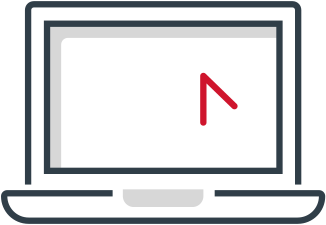Auto logout in seconds.
Continue LogoutLinkedIn asked people what they consider the biggest benefits of returning to in-person work. Most people cited collaboration and socialization, rather than traditional "benefits" such as productivity and in-person meetings.
Tips to make telework work for your team
Methodology
For its Workforce Confidence Index, LinkedIn roughly 5,000 people between May 22 and June 4 on what factors are encouraging them to return to their workplace. LinkedIn received responses from 4,362 people.
LinkedIn distributed the survey to randomly selected members via email. Participants had to opt in to be included in the site's research. Members who are current students, stay-at-home partners, or retirees were excluded from the survey sample to ensure respondents were "active in the workforce," LinkedIn reports.
Key findings
According to the survey, 63% of respondents said that in-person collaboration with colleagues encouraged them to go to their workplace. "Socializing with colleagues and clients" came in next, with 62% citing it as a factor.
About 47% of respondents overall said doing focused work was a factor that encouraged them to go back to an in-person workplace. However, according to LinkedIn, that interest varied among workers. Just 26% of those who have worked fully remote amid the pandemic saying going to work in-person full-time will improve their productivity, compared with 51% of those working a hybrid schedule and 65% of people who have worked entirely in-person.
The survey also found that roughly 47% of respondents overall said that "enjoying workplace perks" and "advancing faster in my career" were attractive benefits of returning to in-person workplaces, with millennials in particular saying those factors were encouraging to them.
The survey found that benefits such as having in-person meetings (44%), enjoying work "'as it used to be'" (37%), and dressing up for work (25%) very less compelling. Wardrobe concerns were in fact a significant discouragement to many respondents, with 33% saying they would be disheartened to stop wearing the more relaxed outfits they could wear while working at home—a share that increased to 40% among millennial respondents and 44% among people who have been working fully remote over the course of the pandemic.
According to Kevin Delaney, founder of the media and advisory start-up, Reset Work, the survey findings suggest workers' thoughts on what is important about in-person work has changed over time. "It's not about sitting at a desk and doing spreadsheet work," Delaney said.
Rather, it's more about engaging with colleagues and "unstructured collaboration," LinkedIn reports. Delaney said this shift would require employers, in turn, to focus less on old measures of attendance and productivity and more on the softer accomplishments of teamwork and networking (Anders, LinkedIn, 6/16).

Covid-19 has introduced unprecedented challenges for managers who may now be managing a remote team or a team adapting to ever-changing circumstances amidst the pandemic. This toolkit is for leaders who need new tools to keep their team productive, engaged, and aligned.
Don't miss out on the latest Advisory Board insights
Create your free account to access 1 resource, including the latest research and webinars.
Want access without creating an account?
You have 1 free members-only resource remaining this month.
1 free members-only resources remaining
1 free members-only resources remaining
You've reached your limit of free insights
Become a member to access all of Advisory Board's resources, events, and experts
Never miss out on the latest innovative health care content tailored to you.
Benefits include:
You've reached your limit of free insights
Become a member to access all of Advisory Board's resources, events, and experts
Never miss out on the latest innovative health care content tailored to you.
Benefits include:
This content is available through your Curated Research partnership with Advisory Board. Click on ‘view this resource’ to read the full piece
Email ask@advisory.com to learn more
Click on ‘Become a Member’ to learn about the benefits of a Full-Access partnership with Advisory Board
Never miss out on the latest innovative health care content tailored to you.
Benefits Include:
This is for members only. Learn more.
Click on ‘Become a Member’ to learn about the benefits of a Full-Access partnership with Advisory Board
Never miss out on the latest innovative health care content tailored to you.

